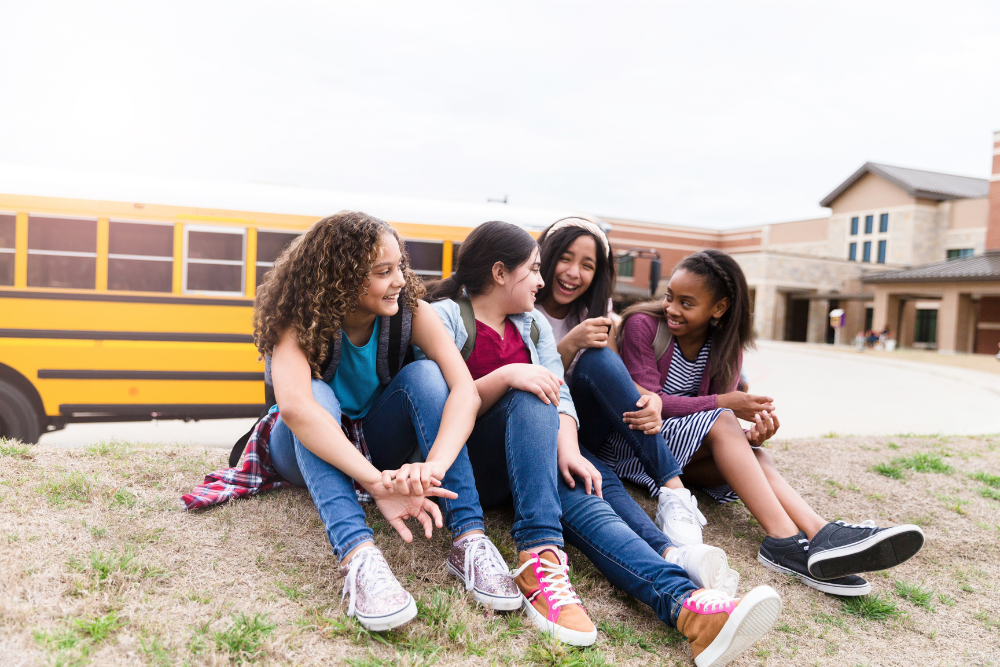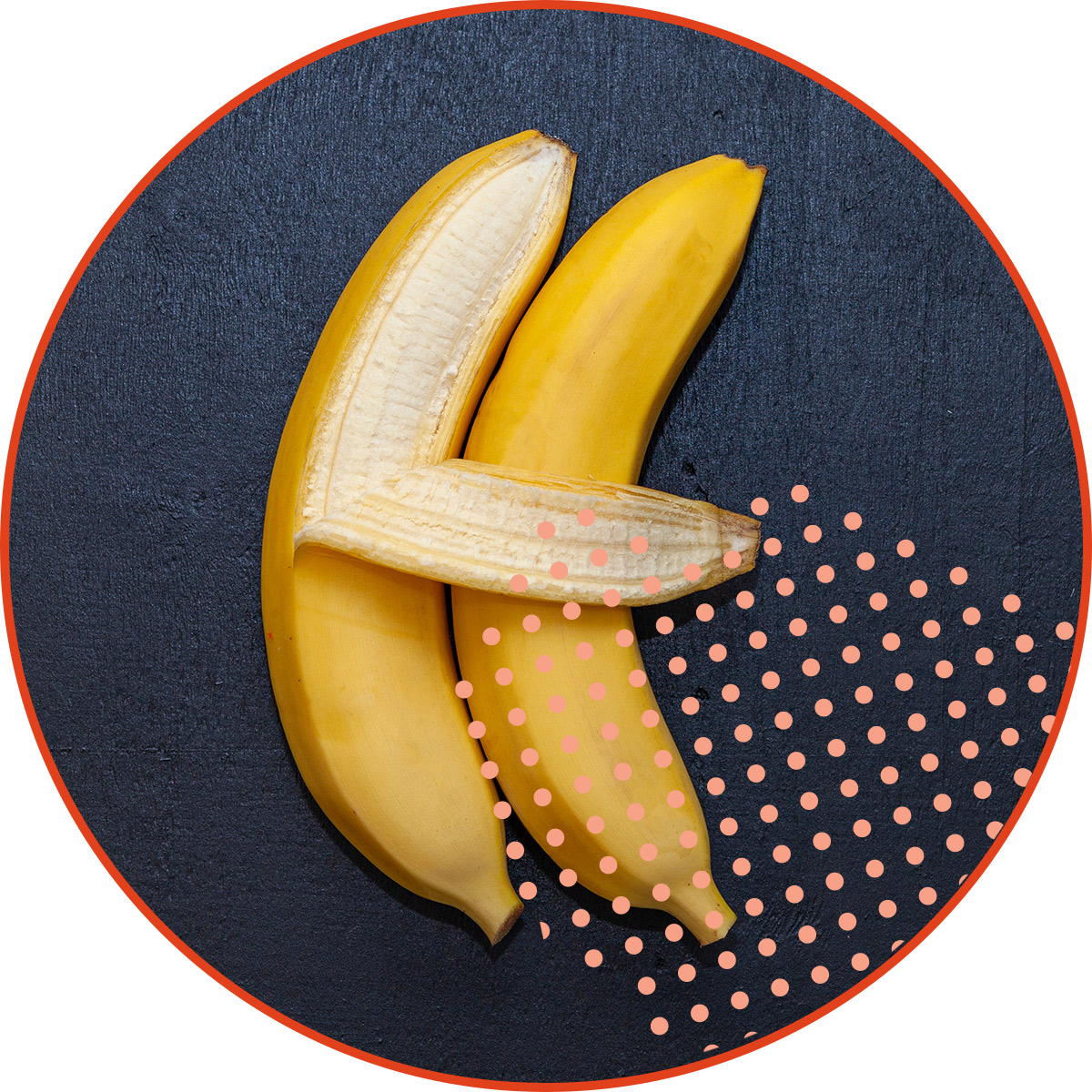As they leave elementary school and head into the hormone filled hallways of middle school where kids roam in herds instead of single file lines, and shiny cell phones replace plastic collectibles in the bus line, you can’t help but worry about whether you’ve prepared your child for life on this new academic and social planet.
Early in the school year is a perfect time to strengthen and discuss the safety net that will make life easier for your child in middle school and beyond. It's woven together from many intertwining and overlapping pieces. Below are some sturdy ones that will give your child a head start on social and emotional health skills and provide important protection.
People who believe in her
Parents matter a lot, but it’s also important that your child sees others cheering her on and believing in her ability to succeed. Sometimes it’s a coach or a teacher, sometimes a youth group leader, sometimes it’s a sibling, a friend or a friend’s parent. Kids who don’t have others openly expressing their confidence in them have a hard time developing the confidence to believe in themselves.
A way out
Tweens love to blend in by following the crowd, but most tweens will tell you that the crowd doesn’t always behave in a way that is comfortable. When your child is uncomfortable or pressured in a group situation, make sure she has a way out. Have a code phrase that she can text you when he needs a way out. Establish a phrase like, “can I stay???” or decide on an emoji which when texted to you really means “call me and tell me I have to come home now!” Their friends will never know they really just asked for help.
Affirmations
For many adolescents, self-esteem takes a nose dive around 12 or 13, and when it does, their self-talk becomes more and more negative. Help your child come up with a couple of phrases that they can say over and over to themselves when that voice in their head is telling them they aren’t good enough. Something as simple as “I deserve respect” or “I’m not stupid, I made a mistake,” or “I can do this.” If they learn to talk to themself like they would talk to a friend, they're on the right track.
Boundaries
In middle school kids definitely will push some boundaries as they're trying to establish their own. Some are simple, like later bedtimes or greater independence. Some are more serious, like relationship and even sexual boundaries. If they're on their own to figure out boundaries, they frequently feel lost. It's well established that adolescents need caring adults to help them establish those boundaries by sharing expectations and being consist. Even if it's awkward, it's time to talk with your child about boundaries — their own AND respecting others. Ask them first what they're comfortable with, and THEN agree or offer a slightly different perspective based on your hopes and expectations.
Values
If you haven’t had conversations about your family values, now is the time. Make sure your child understands what you consider important “in life” and your expectations for their future based on those values. For tweens & teens, it’s especially important to discuss values related to things like health, education, respect, honesty, love and relationships. As young people are exposed to peers from different backgrounds, they begin to explore and challenge many of the traditional values of their own families, but those with a good foundation, usually drift back toward to the values they grew up with. If a child doesn’t know what is expected of them, they are much more likely to be enticed into behavior patterns that are not in line with their values and goals.
A plan
There’s no way to identify all the challenges your child will face in middle school and develop a plan for each one, however, you can practically count on your child being exposed to pornography and/or sexting by the time they finish middle school. A child that has a plan for how to respond to this specific challenge can avoid major damage and difficulty. That means it’s not only important to explain to your child what porn is and isn’t, but it’s more important to help them decide what to DO when they see it or receive a link to it. Same goes with sexting – whether your child receives a request for nudes, receives an image they didn't even request, or is thinking about asking for a nude photo – having a witty or disengaging response and knowing what to do to avoid possession, habit formation, or personal humiliation is important prevention. (For more information on this conversation, go here).
Followers
Every tween wants followers, right? And every tween makes mistakes on social media – especially as they are learning the best ways to use it. Make sure your children have followers who not only follow them on social media, but check in with them in real life. Ask someone you trust to take on this role. Maybe it’s an older sibling, a youth leader, or a friend’s parent. Make sure they are willing to watch your child’s posts on social media and privately message her when she has overshared, over-exposed, or under-represented who she really is. A little help from people who are paying attention will help your child pay more attention and learn valuable lessons.
Humility
Every teen (and every parent) needs to understand and recognize that there will always be people who seem to have more fun, more freedom, more money, more friends, more popularity, nicer stuff, better grades, and more skills than they do. Once your children accept this, they can focus on doing their personal best and sharing in others’ successes.
A sense of adventure
Nothing will teach your child more than trying new things, meeting new people, and taking healthy risks that stretch their mind and body. The adolescent brain craves thrills and excitement, and that comes in the form of risk taking. Make sure your child gets the opportunity to take healthy risks that take them out of their comfort zone (assuring they have their safety equipment and emotional safety net as back-ups). Taking healthy risks will fulfill the thrill-seeking needs of tweens & teens just as much as dangerous behaviors will. Remember that risk taking is required for teens, just encourage and allow healthy risk taking, so they don’t look for other ways to get their thrills.
Personal hygiene items
So this one's a little different, but please don’t forget to make sure your child understands the importance of personal hygiene and how to use personal hygiene products (that you will hopefully provide for their backpack and PE bag!). The middle school staff will thank you!
We'd love to hear what else you'll weave into her safety net? Leave us your tips in the comments.
Did you know Girlology has grade-by-grade video on demand playlists to support her and you — on topics like this and lots others? Learn More HERE.






